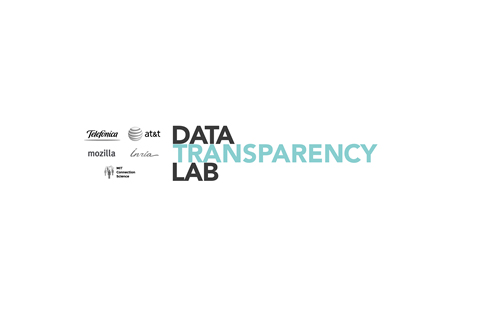- Grantees will present their projects during the 4th edition of Data Transparency Lab which will take place at Telefónica Barcelona in November
Barcelona June 28th, 2017.- Data Transparency Lab (DTL) announces the projects that have been awarded with €50,000 each to develop software to provide awareness on how companies use personal data online. The grants are aimed towards supporting fully or partly the work of a Principal Investigator (PI) and at least one PhD student or postdoc for a period of approximately a year. Grantees will present their projects at the 4th edition of Data Transparency Lab Conferences, an event which gathers world-class researchers, industry leaders, policymakers, developers and communicators to get to know the trends in the field of transparency, online security and data privacy. Data Transparency Lab 2017 will take place on 23-25th November at Telefónica premises in Barcelona (Spain).
Close to 50 projects from 18 countries were reviewed by the Research Committee, set up by 24 representatives from international universities and tech companies. The Research Committee Chairs, Nikolaos Laoutaris (DTL) and Claude Castelluccia (INRIA), announced the projects granted in this edition:
- FA*IR: A tool for fair rankings in search – Technische Universität Berlin (Germany); ISI Foundation (Italy); Eurecat (Spain)
People search engines are increasingly common for job recruiting, and even for finding companionship or friendship. Search algorithms potentially have an impact on the people who are ranked and our aim is to develop the first fair open source search API that will enforce ranked group fairness.
- Facing the hard truth: showing users what mobile apps can learn about them from the location data they collect – Carlos III University (Spain); IMDEA Networks (Spain); Consiglio Nazionale delle Ricerche (Italy)
Most popular mobile services are Location-Based Services (LBS). While the user is usually informed that the service will access positioning data, she is given absolutely no information about the frequency with which data is collected and how it is used precisely upon collection. The objective of this project is raising user awareness about the privacy leakage of trajectory data.
- Transparency via Automated Dynamic Analysis at Scale – UC Berkeley (US)
New transparency tool (website and API) that will display the results of our automated application analysis, providing transparency into data-sharing behaviors. The tool will allow to detect how applications access and share sensitive data, thereby providing transparency into location tracking, device and user fingerprinting, PII leakage, and even various anti-competitive business practices (e.g., privacy policy and legal violations).
- Increasing transparency of data aggregation by Facebook and partners – Northeastern University (EEUU); Max Planck Institute for Software Systems (Germany)
This proposal aims to develop a tool for end users to explore how their data is being aggregated by Facebook and its partners. In other words, the goal is to allow users to see what data Facebook knows about them and is making available as a targeting parameter to its advertisers, and whether that data comes from Facebook itself or a data broker.
- Where the Insecure Things Are: Easy-to-use identification of insecure and privacy leaking IoT devices – CISPA, Saarland University (Germany)
Security and privacy protecting features for Internet of Things (IoT) devices and associated control apps are often lenient to say the least. The IoTdroid app will scan IoT devices in a network for known vulnerabilities, investigate network traffic between IoT devices and remote cloud servers for insecurities and privacy leaks and identify vulnerable IoT control apps installed on the user’s mobile device.
- Exposing Demographic Biases of News Publishers and Promoters on Social Media – Max Planck Institute for Software Systems (Germany); Indian Institute of Technology Kharagpur (India)
Unlike traditional media, today there is no mechanism available for the social media users (Facebook or Twitter) to know the biases of the news publishers. This proposal argues for bringing in transparency in the news production and dissemination over social media. More specifically, our aim is to build a tool for the news readers, which makes the biases of news publishers and promoters transparent.
Full information on the projects awarded: http://datatransparencylab.org/dtl-2017/grantees-2017/
Data Transparency Lab is a global community of technologists, researchers, policymakers and industry representatives working to advance online personal data transparency through scientific research, innovation and design. DTL is supported by Telefónica, AT&T, INRIA, Mozilla y MIT Connection Science.
